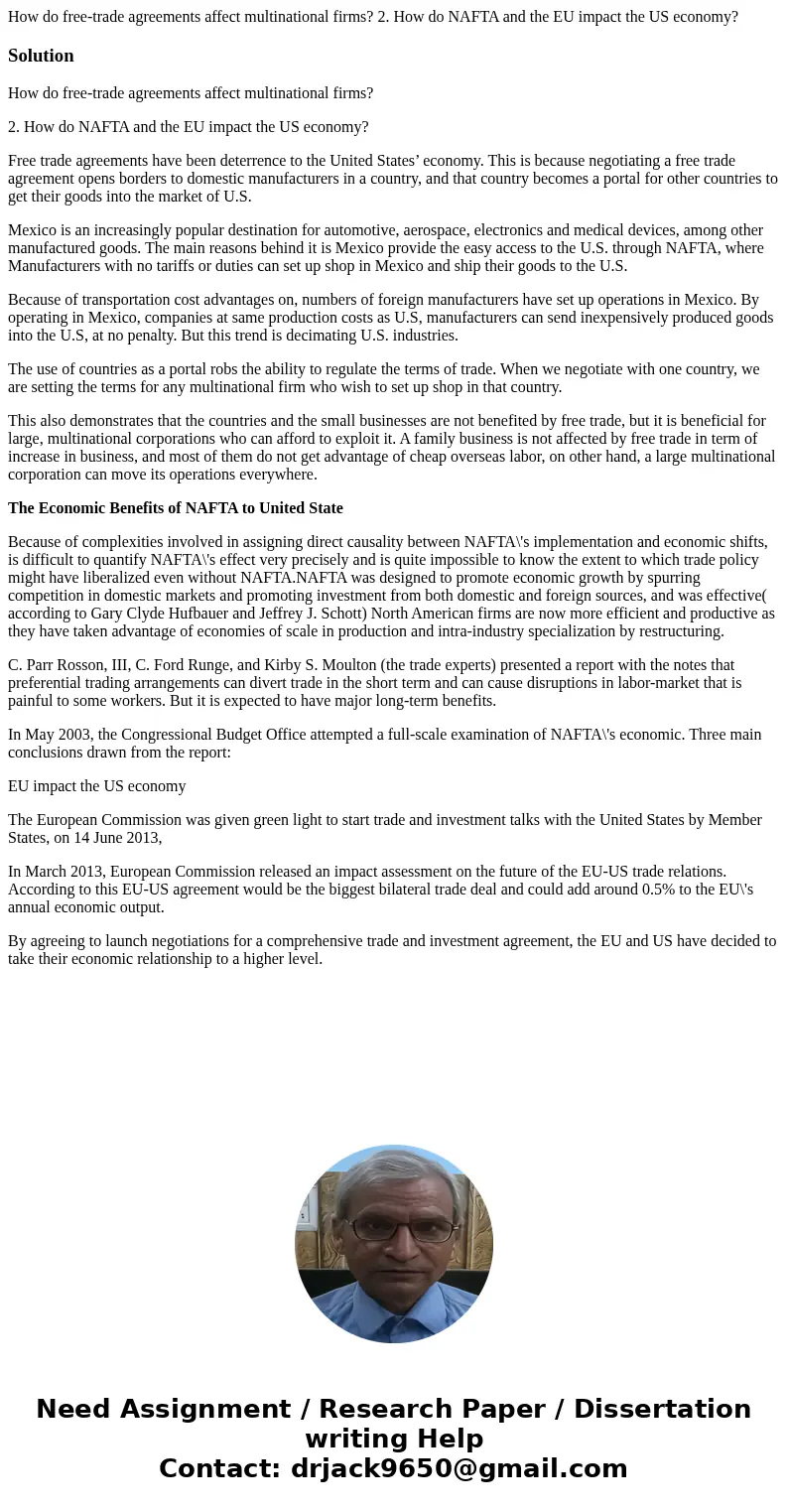How do freetrade agreements affect multinational firms 2 How
How do free-trade agreements affect multinational firms? 2. How do NAFTA and the EU impact the US economy?
Solution
How do free-trade agreements affect multinational firms?
2. How do NAFTA and the EU impact the US economy?
Free trade agreements have been deterrence to the United States’ economy. This is because negotiating a free trade agreement opens borders to domestic manufacturers in a country, and that country becomes a portal for other countries to get their goods into the market of U.S.
Mexico is an increasingly popular destination for automotive, aerospace, electronics and medical devices, among other manufactured goods. The main reasons behind it is Mexico provide the easy access to the U.S. through NAFTA, where Manufacturers with no tariffs or duties can set up shop in Mexico and ship their goods to the U.S.
Because of transportation cost advantages on, numbers of foreign manufacturers have set up operations in Mexico. By operating in Mexico, companies at same production costs as U.S, manufacturers can send inexpensively produced goods into the U.S, at no penalty. But this trend is decimating U.S. industries.
The use of countries as a portal robs the ability to regulate the terms of trade. When we negotiate with one country, we are setting the terms for any multinational firm who wish to set up shop in that country.
This also demonstrates that the countries and the small businesses are not benefited by free trade, but it is beneficial for large, multinational corporations who can afford to exploit it. A family business is not affected by free trade in term of increase in business, and most of them do not get advantage of cheap overseas labor, on other hand, a large multinational corporation can move its operations everywhere.
The Economic Benefits of NAFTA to United State
Because of complexities involved in assigning direct causality between NAFTA\'s implementation and economic shifts, is difficult to quantify NAFTA\'s effect very precisely and is quite impossible to know the extent to which trade policy might have liberalized even without NAFTA.NAFTA was designed to promote economic growth by spurring competition in domestic markets and promoting investment from both domestic and foreign sources, and was effective( according to Gary Clyde Hufbauer and Jeffrey J. Schott) North American firms are now more efficient and productive as they have taken advantage of economies of scale in production and intra-industry specialization by restructuring.
C. Parr Rosson, III, C. Ford Runge, and Kirby S. Moulton (the trade experts) presented a report with the notes that preferential trading arrangements can divert trade in the short term and can cause disruptions in labor-market that is painful to some workers. But it is expected to have major long-term benefits.
In May 2003, the Congressional Budget Office attempted a full-scale examination of NAFTA\'s economic. Three main conclusions drawn from the report:
EU impact the US economy
The European Commission was given green light to start trade and investment talks with the United States by Member States, on 14 June 2013,
In March 2013, European Commission released an impact assessment on the future of the EU-US trade relations. According to this EU-US agreement would be the biggest bilateral trade deal and could add around 0.5% to the EU\'s annual economic output.
By agreeing to launch negotiations for a comprehensive trade and investment agreement, the EU and US have decided to take their economic relationship to a higher level.

 Homework Sourse
Homework Sourse